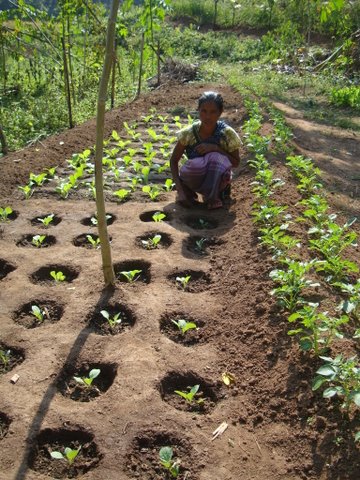Fighting back the desert with the zai holes of Yacouba Sawadogo
Around 1980, Yacouba Sawadogo, a farmer in the parched Yatenga region of Burkina Faso, started experimenting with the ancient local tradition of “zai holes” or planting pits, as a way of restoring limited fertility to utterly degraded land. He increased their dimensions to about 10 inches wide and 8 inches deep and stuffed them full of organic fertilizer such as manure and crop residues.
The manure attracted termites, which dug tunnels that helped break up the soil, allowing rainfall to flow through the ground and collect in the zai basin. The result, according to researchers who have studied the spread of zai hole planting practices throughout the region, has been extraordinary. Hundreds of thousands of hectares of semi-arid land that could no longer be cultivated have been restored to productive use.
Sawadogo’s initial plan was to reclaim land for sorghum cultivation. But he discovered that tree seeds tended to end up germinating in the zai holes, and over time, he and other Burkina Faso farmers have begun a slow but steady process of successful reforestation.
The practice has spread throughout the Sahel region of West Africa, helped along by the Association for the Promotion of Zai, founded by Sawadogo, and development NGOs that support “farmer managed natural regeneration” agricultural methods. At a symposium in Nigerlast week sponsored by the International Crops Research Institute for the Semi-Arid Tropics, Chris Reij, a Dutch expert in West Africa who has spent the last 25 years working in the region, presented the results of astonishing levels of reforestation in Niger: Some 3 million hectares of “degraded semi-arid land in Niger have been rehabilitated by farmers on their own initiative.” (Thanks to SciDev.Net for the tip.) Farmers have been digging zai holes to puncture through the desert crust, planting trees, and bit by bit, reclaiming land once considered lost for good. Continue>>>

No comments:
Post a Comment